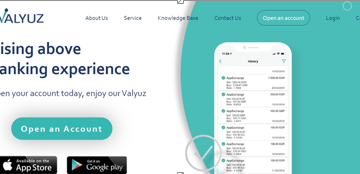In today’s fast-paced and digitally-driven job market, video interviews have become a crucial component of the hiring process. As organizations embrace technology, many are turning to video interview services to streamline their recruitment efforts. However, mastering the art of video interviews requires a unique set of skills and strategies. In this guide, we will explore the latest trends in video interview service and offer insights from interview experts to help you excel in this medium.
The Rise of Video Interview Services
Video interview services have gained significant traction in recent years. With the advent of high-speed internet, advanced camera technology, and video conferencing platforms, employers and job seekers alike are finding video interviews to be a convenient and efficient way to connect.
1. Convenience: Video interviews eliminate the need for geographical proximity, allowing candidates from across the world to interview for positions without the expense and time commitment of traveling. It’s a win-win situation for both employers and job seekers.
2. Cost-Effective: Companies can save substantial amounts of money by conducting initial interviews via video, reducing the need for in-person meetings, transportation, and accommodations.
3. Time Efficiency: Video interviews save time, allowing employers to efficiently assess candidates and make quicker hiring decisions. Job seekers benefit from reduced travel time, too.
4. Expanded Talent Pool: With video interviews, organizations can tap into a wider talent pool and find the right fit for their roles more easily.
The Latest Trends in Video Interview Services
To stand out in the job market, it’s essential to keep up with the latest trends in video interview services. Some of the most recent developments include:
1. AI-Powered Screening: Many video interview services are incorporating artificial intelligence (AI) to help organizations screen and evaluate candidates more effectively. AI algorithms can assess facial expressions, language, and tone of voice to gauge a candidate’s suitability.
2. Customizable Branding: Employers can now customize the appearance of their video interview platform to align with their branding, creating a more seamless and professional candidate experience.
3. Collaborative Tools: Video interview services now offer collaborative features, making it easier for multiple interviewers to assess candidates in real-time and share feedback efficiently.
4. Candidate Feedback: Some services offer candidates the opportunity to receive feedback on their interview performance, allowing them to improve their skills.
5. Mobile Accessibility: As more people access the internet via mobile devices, video interview services have become increasingly mobile-friendly, making the process more accessible to everyone.
The Importance of Interview Experts
To make the most of these video interview services, it’s crucial to seek guidance from interview experts. Interview experts have a wealth of knowledge and experience that can help job seekers and employers navigate the complexities of video interviews.
1. Skill Enhancement: Interview expert can provide valuable insights into improving your interview skills. They can help job seekers practice and refine their communication techniques, body language, and presentation.
2. Understanding Video Interview Etiquette: Interviewing through a screen comes with its own set of etiquette rules. Experts can guide candidates on how to establish rapport, maintain eye contact, and dress appropriately for a video interview.
3. Overcoming Nervousness: Many candidates experience nervousness during interviews. Interview experts can offer strategies to calm nerves and project confidence.
4. Answering Tough Questions: Interview experts can help job seekers prepare for challenging questions that often come up during interviews, providing guidance on how to structure answers effectively.
Tips for Excelling in Video Interviews
Here are some key tips from interview experts to help you excel in video interviews:
1. Prepare Your Environment: Ensure you have a quiet, well-lit, and clutter-free space for your video interview. A neutral background can help the interviewer focus on you.
2. Test Your Equipment: Prior to the interview, test your camera, microphone, and internet connection to avoid technical issues during the interview.
3. Dress Professionally: Dress as you would for an in-person interview. It demonstrates your seriousness and professionalism.
4. Maintain Eye Contact: Look directly into the camera to create the illusion of eye contact, as you would during an in-person interview.
5. Practice Your Answers: Prepare responses to common interview questions and practice them. Remember to be concise and to the point.
6. Use Visual Aids: If relevant, use visual aids or slides to support your answers. Ensure they are clear and well-prepared.
7. Body Language: Pay attention to your body language. Sit up straight, avoid fidgeting, and use gestures naturally.
8. Engage with the Interviewer: Be an active listener and engage with the interviewer by asking questions and showing interest in the role.
9. Follow-up: Send a thank-you email after the interview to express your appreciation and reiterate your interest in the position.
10. Continuous Improvement: Seek feedback from interview experts or mentors to improve your performance.
Common Video Interview Mistakes to Avoid
Even with the best advice, interviewees often make certain mistakes during video interviews. Here are some pitfalls to steer clear of:
1. Technical Issues: Failing to test equipment beforehand and experiencing technical glitches during the interview can be distracting and unprofessional.
2. Lack of Preparation: Inadequate preparation can lead to stumbling over answers or failing to highlight your qualifications effectively.
3. Ignoring Nonverbal Communication: Body language and facial expressions still matter in a video interview. Ignoring these aspects can lead to miscommunication.
4. Inadequate Research: Not researching the company, its culture, and the specific role can make you seem disinterested or unprepared.
5. Overlooking the Camera: Staring at your own image on the screen rather than the camera can give the impression of disinterest.
6. Poor Time Management: Going over the allotted interview time can be seen as disrespectful of the interviewer’s schedule.
7. Neglecting Follow-Up: Failing to send a thank-you email can reduce your chances of moving forward in the hiring process.
Conclusion
Video interview services have become an integral part of the modern hiring process, offering convenience, cost savings, and a wider talent pool. To excel in this medium, it’s vital to stay updated on the latest trends and seek guidance from interview experts. By following the advice of these experts, preparing diligently, and avoiding common mistakes, you can increase your chances of success in video interviews. Whether you’re a job seeker or an employer, mastering the art of video interviews will prove invaluable in the competitive world of recruitment.



